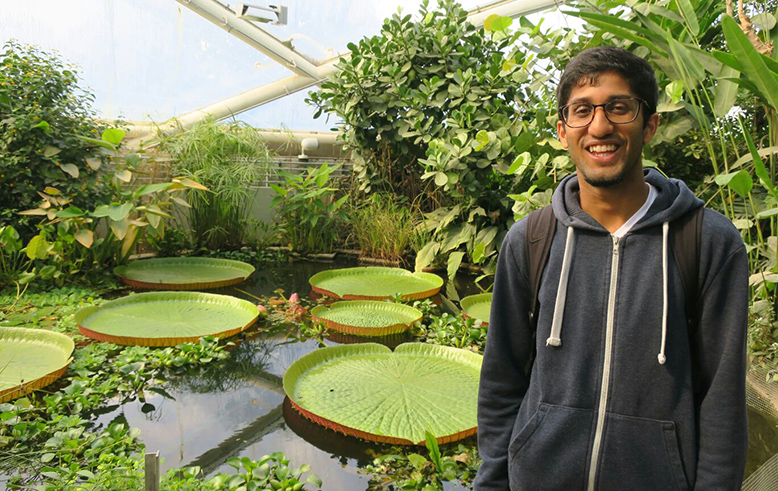- OT
- Life in practice
- Practitioner stories
- Happy days
Happy days
Optometry undergraduate Benjamin Chandra spent his summer in Denmark, the 'happiest country in the world,' in order to see optometry from another perspective

12 October 2016
This summer I visited Denmark, the home of bacon, fairytales, Lego and hygge (look it up), to participate in a two-month placement at Aarhus University Hospital (AUH).
This opportunity is available to all students through the European Regional Action Scheme for the Mobility of University Students (ERASMUS+) programme, which provides support and funding to enable students from across Europe to study or work in different countries.
I took this opportunity, which was made possible through help from Aston University’s Dr Rebekka Heitmar and Professor Jesper Hjortdal of AUH, during the summer between my second and third year at Aston University.
"It was an invaluable learning experience and I probably saw more patients with keratoconus in these two months than one might see in 10 years on the UK High Street"
During these two months I witnessed a host of fascinating procedures in the hospital – from SMILE refractive surgery, to deep anterior lamellar keratoplasty and dacryocystorhinostomy. It was an invaluable learning experience and I probably saw more patients with keratoconus in these two months than one might see in 10 years on the UK High Street. This placement certainly cemented my decision to study optometry and my desire to become a hospital optometrist.
Danish differences
During my placement I developed a renewed appreciation for optometry in the UK, where optometrists have a wider scope of practice than in any other European country.
It was very interesting to see how eye care is conducted in a different country. Optometrists in Denmark are legally unable to use diagnostic drugs or refer directly to the hospital. Instead there are private ophthalmologists, much like dentists in the UK, who manage everyday eye issues and refer directly to the hospital.

Having optometrists in Danish hospitals is a recent occurrence, but one that is proving successful. This change is part of a shift in Denmark where optometrists’ clinical responsibilities are increasing and becoming more like what is seen in the UK.
In Denmark, optical stores do not receive income from the healthcare system for eye tests and clinical procedures. Eye tests are mostly offered for free and therefore profit is made solely through the patient, primarily through spectacles and contact lens sales.
Interestingly, optometry and dispensing optics are being increasingly integrated in Denmark because optometrists commonly dispense spectacles, with the support of optical assistants.
A new culture
Life outside AUH was just as important to my experience, and I found travelling in a new country for an extended time by myself eye-opening. The Danish culture is certainly interesting – when students actually get paid to study at university, you begin to understand why Denmark is named the world’s ‘happiest country.’
"When students actually get paid to study at university, you begin to understand why Denmark is named the world's 'happiest country'"
Being abroad, even mundane, everyday tasks can have the tendency to become daunting and seemingly impossible – one of my greatest challenges was finding a good tin of baked beans. And learning a new language was another dimension entirely – while I couldn’t count to 20 in Danish, I quickly learned important phrases such as ‘one or two’ and ‘look at the chart.’
This experience has unquestionably helped me as a professional, but also granted me memories I shall treasure forever, and I have made friends from all over the globe. I would certainly encourage practitioners and students to explore optometry in another country and to enjoy the experiences that follow.
To my fellow undergraduates, I remind you that ERASMUS+ is a European Union initiative. With the summer’s UK Brexit vote in mind, you may need to grasp this amazing chance quickly before it passes you by.
Advertisement


Comments (1)
You must be logged in to join the discussion. Log in
Anonymous02 November 2016
Fantastic read!
Report Like 190